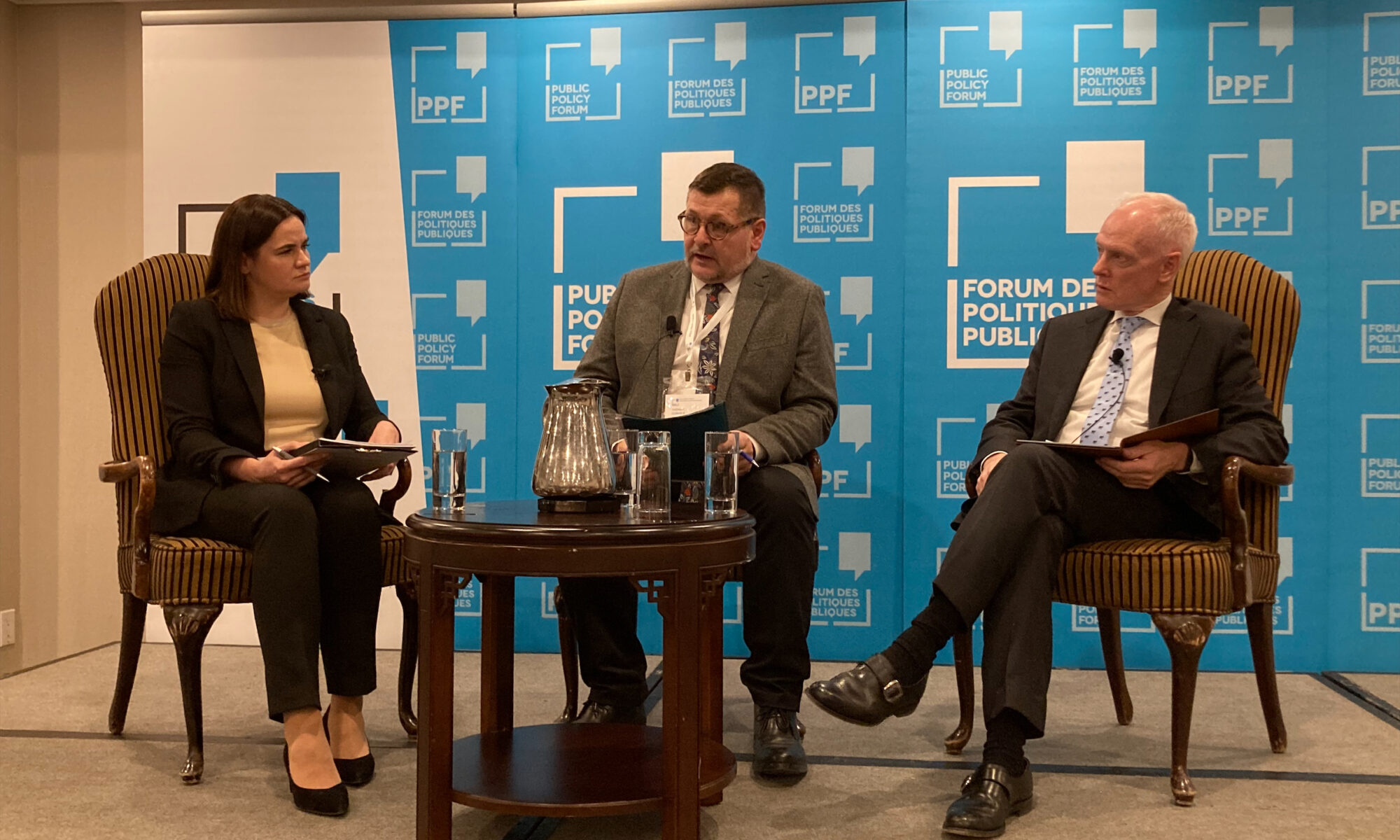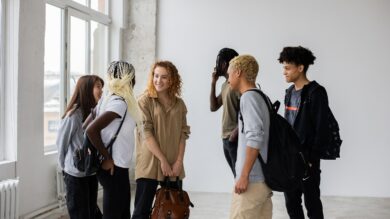
Five Questions for Sviatlana Tsikhanouskaya
Sviatlana Tsikhanouskaya, exiled National Leader of Belarus and Head of the United Transitional Cabinet, sat down with Katherine Feenan, Director of Policy and Content Programming at the Public Policy Forum, on Monday in Ottawa. Their conversation ranged from individual sanctions to the need for investigative journalism and a mother’s resolute fight. This transcript has been edited for length and clarity.
Question #1: How is the conflict in Ukraine affecting Belarus and its people?
Answer: Belarusian people understand the fate of Belarus and Ukraine are connected and intertwined because we have the same enemy. Actually, I think that our country was occupied first. The only difference with Ukraine is that President Alexsandr Lukashenko gave our land without any obstacles. But the Belarusian people understand that the war could happen on our territory as well.
Question #2: Is Lukashenko’s fate tied to what happens in Ukraine? And to Putin, too?
Answer: The situations in Russia and Belarus are different. Of course, in Russia there are opposition groups, but still people are supporting this war. And it’s so painful to see that people are brainwashed. They are poisoned with these imperialistic messages. In Belarus, people oppose this war, they don’t want this war. They don’t understand this war. And so, this is the difference.
Question #3: You’re here in Canada to talk about sanctions. Can you give us more detail on what you’re looking for this time around as it relates to sanctions from the Canadian government?
Answer: Canada has joined all the sanctions that have been imposed on Lukashenko’s regime. But Canada can impose individual sanctions on those who are supporting this regime. Maybe all those people, they’ll never go to Canada, but it’s a very important symbolic message to Belarusian people that Canada is watching.
Question #4: How do we better support civil society and democratic development in Belarus?
Answer: You can launch programs supporting narrow initiatives, like media, for example. Focus on something. You are already doing a lot, I have to say, but we need more assistance because we are fighting Russian propaganda. To counter propaganda, we need investigative journalism. We need to assist underground journalists.
Question #5: Although I recognize you did not seek out this role in what we would recognize as a more traditional way, but instead had the opportunity trust upon you, you’ve been in a position of political power now for two years. What would your advice be to women in the region, or globally, who want to run for office?
Answer: Women are much stronger than they might seem. And when a woman is caught in such circumstances, she finds strength in doing something not for herself, but for others. I always considered myself to be a housewife, a mother; my first child was born deaf. I wasn’t sure if I would be able to rehabilitate him, but I knew that every day I had to do something to help him. It took me about eight, nine years to start to integrate him in society. But I did this, I’m very proud of this. And now (in politics), I also don’t know when will the end will be, when there will be victory. But you know the answer lies in systematically working. Waking up every morning, thinking not about you, but about people in prisons, about families. You have no other choice but to fight.





